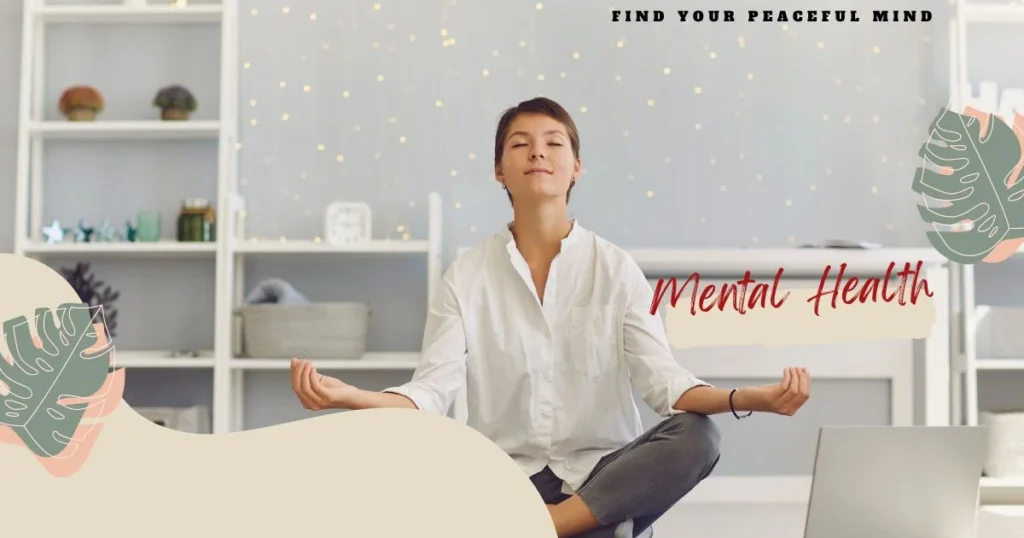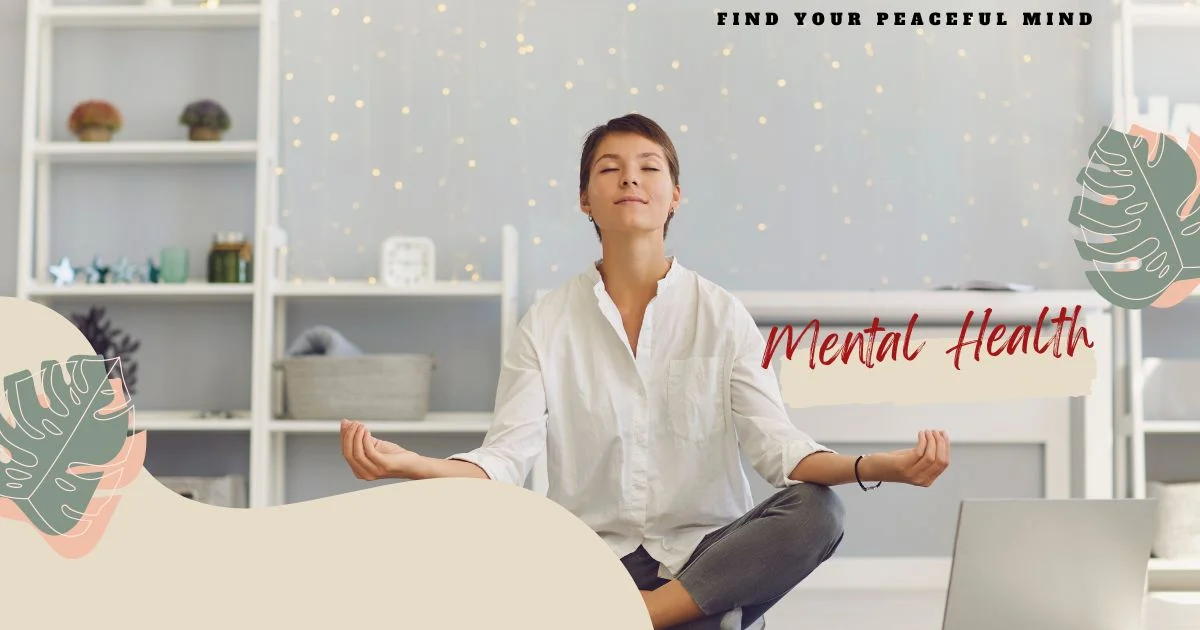Mental health is a crucial aspect of overall health and well-being. Poor mental health can lead to several adverse consequences, such as reduced quality of life, poor physical health, and increased risk of developing mental health conditions such as anxiety and depression. Therefore, it is crucial to prioritize mental health and take steps to improve it.
There are several ways to improve mental health, including connecting with others, getting adequate sleep, practicing mindfulness, maintaining a balanced diet, exercising regularly, setting realistic goals, taking breaks from technology, and seeking professional help. These strategies can help manage mental health conditions, reduce stress and anxiety, and promote overall mental well-being.
Moreover, there are several mental health techniques that individuals can try, such as meditation, yoga, deep breathing, cognitive-behavioral therapy, and journaling. These techniques can help reduce stress, improve mood, and increase mindfulness, leading to better mental health.
In this article, we will explore different ways to improve mental health, discuss the causes of poor mental health, and provide tips and techniques to promote mental well-being. We will also answer some frequently asked questions about mental health and provide practical advice to help individuals prioritize their mental health.

How to Improve Mental Health
Mental health is an essential aspect of overall health, and it refers to a person’s psychological, emotional, and social well-being. Poor mental health can affect a person’s daily functioning, relationships, and overall quality of life. This article will explore causes of poor mental health, tips to improve mental health, and mental health techniques to try.
You may also like.What Affects Mental Health? Discover 6 Factors
Causes of Poor Mental Health
Several factors can contribute to poor mental health, and some of these factors include:
1.Genetics
Genetics can play a role in mental health conditions such as depression, anxiety, and bipolar disorder. People with a family history of these conditions may be at a higher risk of developing them.
2.Life Events
Life events such as trauma, loss of a loved one, financial difficulties, and relationship problems can impact a person’s mental health. These events can lead to stress, anxiety, and depression.
Read more.What exactly is Mental Health?Get the Best Answer 6 Unique Benefits Of Yoga For Mental Health Mental Health- Types,Causes,Symptoms
3.Substance Abuse
Substance abuse, such as drugs and alcohol, can also contribute to poor mental health. These substances can alter a person’s brain chemistry and lead to mental health conditions.
4.Poor Nutrition
A poor diet lacking in essential nutrients can lead to poor mental health. Nutrient deficiencies can lead to depression, anxiety, and other mental health conditions.
5.Lack of Physical Exercise
Physical exercise is essential for overall health, including mental health. Lack of physical activity can lead to poor mental health.
Tips to Improve Mental Health
Several tips can help improve mental health. These tips include:
1.Connect with Others
Connecting with others can improve mental health. Social connections can provide support, a sense of belonging, and improve self-esteem.
2.Get Adequate Sleep
Getting adequate sleep is essential for overall health, including mental health. Lack of sleep can lead to depression, anxiety, and irritability.
3.Practice Mindfulness
Mindfulness is the practice of being present in the moment and accepting one’s thoughts and feelings. Mindfulness can improve mental health by reducing stress and anxiety.
4.Maintain a Balanced Diet
A balanced diet with essential nutrients can improve mental health. Nutrients such as omega-3 fatty acids, magnesium, and vitamin D can improve mood and reduce symptoms of depression and anxiety.
5.Exercise Regularly
Regular exercise can improve mental health. Exercise can release endorphins, which are natural mood boosters. Exercise can also reduce stress and anxiety.
6.Set Realistic Goals
Setting realistic goals can improve mental health. Goals provide direction and purpose and can improve self-esteem when accomplished.
7.Take Breaks from Technology
Taking breaks from technology can improve mental health. Social media and other technology can contribute to feelings of anxiety and depression. Taking breaks can reduce stress and improve mental health.
8.Seek Professional Help
Professional help can improve mental health. Mental health professionals such as therapists and psychiatrists can provide support and help manage mental health conditions and develop coping skills.

Mental Health Techniques to Try
Several mental health techniques can also improve mental health. These techniques include:
1.Meditation
Meditation is a mindfulness technique that involves focusing on the breath and clearing the mind. Meditation can reduce stress and anxiety and improve overall mental health.
2.Yoga
Yoga is a physical and mindfulness practice that can improve mental health. Yoga can reduce stress, improve mood, and increase mindfulness.
3.Deep Breathing
Deep breathing is a relaxation technique that involves taking slow, deep breaths. Deep breathing can reduce stress, lower blood pressure, and improve overall mental health.
4.Cognitive Behavioral Therapy
Cognitive Behavioral Therapy (CBT) is a talk therapy that focuses on changing negative thoughts and behaviors. CBT can help manage mental health conditions such as depression and anxiety.
5.Journaling
Journaling is a mindfulness technique that involves writing down thoughts and feelings. Journaling can help manage stress and anxiety and improve overall mental health.
Conclusion
Overall, mental health is an essential aspect of overall health, and poor mental health can impact daily functioning and quality of life. Causes of poor mental health include genetics, life events, substance abuse, poor nutrition, and lack of physical exercise. Tips to improve mental health include connecting with others, getting adequate sleep, practicing mindfulness, maintaining a balanced diet, exercising regularly, setting realistic goals, taking breaks from technology, and seeking professional help. Mental health techniques to try include meditation, yoga, deep breathing, cognitive-behavioral therapy, and journaling. Prioritizing mental health is essential for overall health and well-being.
Disclaimer.The information provided on this blog is for general informational purposes only. The content is not intended to be a substitute for professional advice or specific recommendations.
FAQs
Can poor mental health impact physical health?
Yes, poor mental health can impact physical health by increasing the risk of developing chronic health conditions such as heart disease and diabetes.
How often should I exercise for good mental health?
Experts recommend getting at least 30 minutes of moderate exercise most days of the week for good mental health.
Is it okay to seek professional help for mental health?
Yes, seeking professional help for mental health is essential for managing mental health conditions and developing coping skills.
Can meditation help with anxiety?
Yes, meditation can help reduce anxiety by promoting relaxation and mindfulness.
How can I practice mindfulness in my daily life?
You can practice mindfulness in your daily life by focusing on the present moment, paying attention to your senses, and accepting your thoughts and feelings without judgment.




